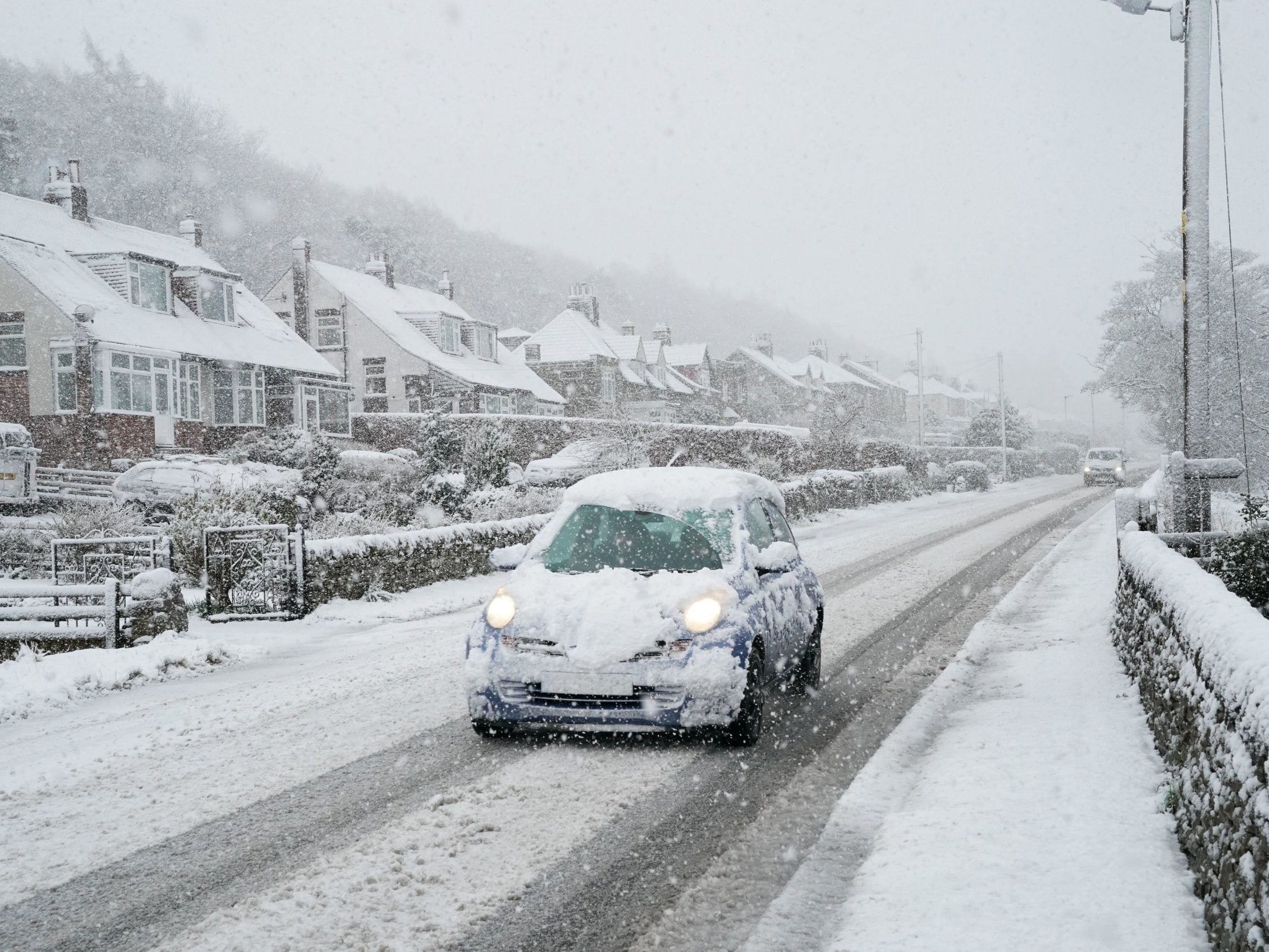Voters may be in for a frosty day at the polls, as forecasters warn of a cold snap due to hit Britain just in time for election day on December 12.
Meteorologists at the Met Office have predicted that a wintry spell will arrive for election week, covering the UK in frost and seeing temperatures plunge to sub-zero in some areas.
But pollsters say voters are unlikely to be deterred from going to the polls next week, with poor weather only having “a small effect on turnout”.
The long-term forecast suggests snowfall in Scotland and the Pennines, with the rest of the UK to be hit by blustery winds and freezing fog.
Temperatures are predicted to drop throughout the week, dipping below normal towards election day, with a greater chance of frost developing across the country.
Weather photographer of the year, 2019
Show all 24However, a blanket of snow would not stop the election, which would require legislative intervention.
Talk of possible snow combined with a drop in temperatures and winter’s reduced daylight hours has raised some concerns the poll could see lower turnout than the 68.7 per cent achieved in 2017.
However, despite worries about a reduced turnout, experts say there is no correlating evidence to show that bad weather in the UK stops people from voting.
Ben Page, CEO of Ipsos MORI, said: “In terms of winter elections, we only really have February 1974 to go on. Then the weather was bad but the turnout (79 percent) was high, and up on 1970.
“By contrast, for the Blair 1997 landslide, temperatures rose to the mid-20s, but turnout (71 percent) was down on 1992.
“Other factors – such as the perceived importance and closeness of the election – are likely to play at least as big a part as the weather, and of course far more people tend to vote by post, where the weather is irrelevant.”
Chris Curtis, political research manager at YouGov, added: “It might be getting extremely cold over the next week or so but it’s unlikely that the weather is going to deter anyone going to the polls who wasn’t already staying at home.
“Most of the evidence shows that weather actually has quite a small effect on turnout, and factors such as how close the election is perceived to be, and how different the parties’ positions are, normally have more of an impact.”
Speaking earlier in the election campaign, polling guru Professor John Curtice said: “Brexit is so important to voters that a spot of bad weather will not keep them away.”
He pointed out that when the country went to the polls in February 1950, a record 84 per cent of voters turned out.
There has not been a December election since 1923, and some would argue that the icy temperatures predicted for next week’s polling day are a good reason why.
As recently as December 2017, snow and freezing conditions led to travel disruption across the UK, with 28cm falling in Sennybridge in Wales and 12cm in the Chilterns.
All recent elections have taken place in April, May or June, with the last polling day in winter on February 28, 1974.
Looking ahead to mid-December, the Met Office predicts “rain and transient mountain snow” will cross the UK at the beginning of the week, followed by “blustery showers” which will be heaviest in the west.
During election week, meteorologists suggest that “the more unsettled theme is likely to persist”, with longer spells of rain, wintry showers and harsh winds.
There is also a warning in place over an increased risk of wintry showers further north, with a low risk of more widespread snow and frost and freezing fog also possible.
The forecast adds that strong winds could hit the UK and be most pertinent in the south, and that drier interludes will remain short-lived.
Nicola Maxey, a spokeswoman for the Met Office, said: “The unsettled weather is set to continue with rain and strong winds at times.
“Colder weather, particularly developing on Wednesday to Thursday, has the potential of snowfall on some hills and mountains in Scotland and a dusting on the Pennines. There is no snow predicted for central London.
“The colder weather may well affect much of the UK, but the risk of snow looks to be restricted to the tops of mountains in Scotland and the Pennines.
“There are no indications that we would see some snow in the south at the minute, but that doesn’t mean we wouldn’t see frost.”
Temperatures on polling day are also due to be “slightly below average”, she added, noting that Thursday December 12 is currently outside of the Met Office’s detailed forecast range and that a more accurate picture will be provided nearer the date.
But Britons are being warned to brace themselves for a chilly polling day, as whilst the election is eight days away and the forecast is subject to change, it is unlikely to be mild.
Press Association
Subscribe to Independent Premium to bookmark this article
Want to bookmark your favourite articles and stories to read or reference later? Start your Independent Premium subscription today.


Join our commenting forum
Join thought-provoking conversations, follow other Independent readers and see their replies